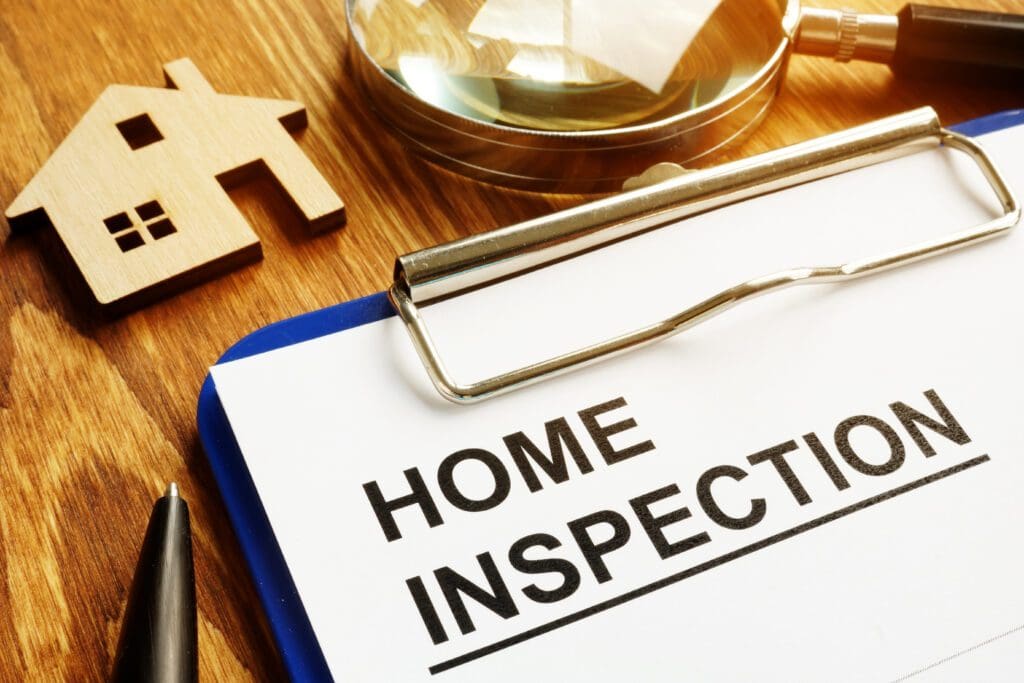Are Home Inspections Important When Buying a House?

The Importance of Home Inspections
1. Uncover Hidden Problems
One of the primary reasons to get a home inspection is to uncover hidden problems that may not be visible to the untrained eye. These can include issues like structural damage, mold infestations, faulty wiring, plumbing leaks, or termite damage. Discovering these problems before finalizing the purchase can save buyers from unexpected repair costs and potential health hazards.
2. Negotiating Power
A home inspection report provides buyers with leverage in negotiations. If significant issues are discovered, buyers can request the seller to make repairs, reduce the sale price, or offer other concessions. This can be particularly beneficial in a buyer's market, where sellers may be more willing to accommodate requests to close the deal.
3. Future Planning
Even if the inspection reveals only minor issues, it helps buyers plan for future maintenance and repairs. Knowing what needs attention and when can aid in budgeting and prevent small problems from escalating into major issues.
4. Safety Assurance
A home inspection can identify safety hazards such as faulty wiring, carbon monoxide leaks, or structural weaknesses. Addressing these issues before moving in ensures that the home is safe for its new occupants.
5. Peace of Mind
The knowledge that a professional has thoroughly examined the home provides buyers with peace of mind. It reduces the uncertainty and anxiety associated with purchasing a property, allowing buyers to make informed decisions with confidence.
Pros of Home Inspections
1. Comprehensive Evaluation
Home inspections offer a detailed and comprehensive evaluation of the property's condition. This includes areas that buyers might overlook or be unaware of, ensuring no stone is left unturned.
2. Professional Insight
Inspectors bring professional expertise and experience to the table. They can identify potential issues that might not be immediately apparent and provide recommendations for addressing them.
3. Objective Assessment
An inspector provides an objective assessment of the home's condition, free from emotional attachment or bias. This impartiality is crucial for making sound decisions.
4. Informed Decisions
With a home inspection report in hand, buyers are equipped to make informed decisions. They can weigh the pros and cons of proceeding with the purchase, renegotiating terms, or walking away if the issues are too significant.
5. Investment Protection
A home inspection protects the buyer's investment by identifying problems that could affect the property's value. It helps ensure that buyers are getting what they pay for and not inheriting costly repairs.
Cons of Home Inspections
1. Cost
One of the main drawbacks of a home inspection is the cost. Depending on the size and location of the property, inspections can range from a few hundred to a thousand dollars. While this is a significant expense, it is often a worthwhile investment considering the potential savings on future repairs.
2. Not All-Inclusive
Home inspections, while thorough, are not all-inclusive. Some issues, like those hidden behind walls or under floors, may not be detected. Additionally, specialized inspections (e.g., for pests, radon, or asbestos) may be required for a more complete assessment.
3. Time-Consuming
Scheduling and conducting a home inspection can take time, potentially delaying the closing process. However, the time invested is typically outweighed by the benefits of identifying issues before finalizing the purchase.
4. Potential Deal Breakers
While discovering significant problems can be beneficial, it can also be disheartening for buyers who have become emotionally attached to a property. In some cases, the findings of an inspection can lead buyers to back out of a deal.
The Inspection Process
1. Choosing an Inspector
Selecting a qualified and reputable home inspector is crucial. Buyers should look for certified professionals with good reviews and references. Membership in professional organizations like the American Society of Home Inspectors (ASHI) or the International Association of Certified Home Inspectors (InterNACHI) is a good indicator of an inspector's credentials.
2. Scheduling the Inspection
Once an inspector is chosen, the next step is scheduling the inspection. It’s recommended that buyers be present during the inspection to ask questions and gain a better understanding of the property’s condition.
3. The Inspection Day
On the day of the inspection, the inspector will thoroughly examine the property, typically taking several hours to complete the process. They will document their findings in a detailed report, often including photographs and descriptions of any issues discovered.
4. Reviewing the Report
After the inspection, buyers should carefully review the report. It’s important to understand the severity of any issues and determine the necessary steps to address them. Consulting with the inspector for clarification or further recommendations can be helpful.
5. Making Decisions
With the inspection report in hand, buyers can make informed decisions about how to proceed. They can negotiate with the seller for repairs or concessions, decide to move forward with the purchase, or, in some cases, choose to walk away from the deal.

Final Thoughts
Home inspections are an essential part of the home buying process. They provide a comprehensive evaluation of a property's condition, uncover hidden problems, and offer valuable insights for making informed decisions. While there are costs and potential drawbacks associated with inspections, the benefits far outweigh the negatives. By investing in a professional home inspection, buyers can protect their investment, ensure their safety, and gain the peace of mind that comes with knowing they are making a sound purchase.
Ready to Start the Home Buying Process With Confidence?
Contact our team of experts today to begin working with the best through your home buying process. We'll guide you from start to finish, walking you through every aspect of buying a home to keep it simple for you.
Frequently Asked Questions
- If major defects are discovered during the inspection, how can a buyer negotiate without losing the deal?
- Can a home inspection cover potential environmental concerns (e.g., radon, mold, lead paint) or should I schedule separate specialists?
- How should I interpret the inspection report if I plan to hold the property as a rental investment instead of living in it?
Question: If major defects are discovered during the inspection, how can a buyer negotiate without losing the deal?
Answer: A home inspection isn’t the end of the road—it’s a conversation opener. Buyers can request a repair allowance or credit at closing to cover cost of correction, ask the seller to complete work prior to closing, or renegotiate the sale price. It’s wise to review the inspection report with your realtor to prioritize which issues are truly deal-killers versus cosmetic or long-term maintenance items. The key: stay calm, be collaborative, and keep your end goal in mind.
Question Can a home inspection cover potential environmental concerns (e.g., radon, mold, lead paint) or should I schedule separate specialists?
Answer: While standard home inspections often cover general structural, mechanical and safety systems, specialized environmental hazards may require separate testing. If your region is known for radon, older homes might have lead paint, or you suspect mold from past floods—making those add-ons early on gives you clearer information and negotiating power. Ask your inspector which tests are included and whether you’ll need referrals for specialized assessments.
Question: How should I interpret the inspection report if I plan to hold the property as a rental investment instead of living in it?
Answer: If you’re buying for investment, the inspection report becomes a tool for financial forecasting rather than just a one-time fix. Focus on items that affect tenant safety, code compliance and long-term capital expense (HVAC, roof, plumbing). Issues like old wiring or weak drainage might mean higher maintenance costs or tenant turnover. Use the report to build an asset-preservation plan, estimate reserves, and decide how aggressive your offer should be.
